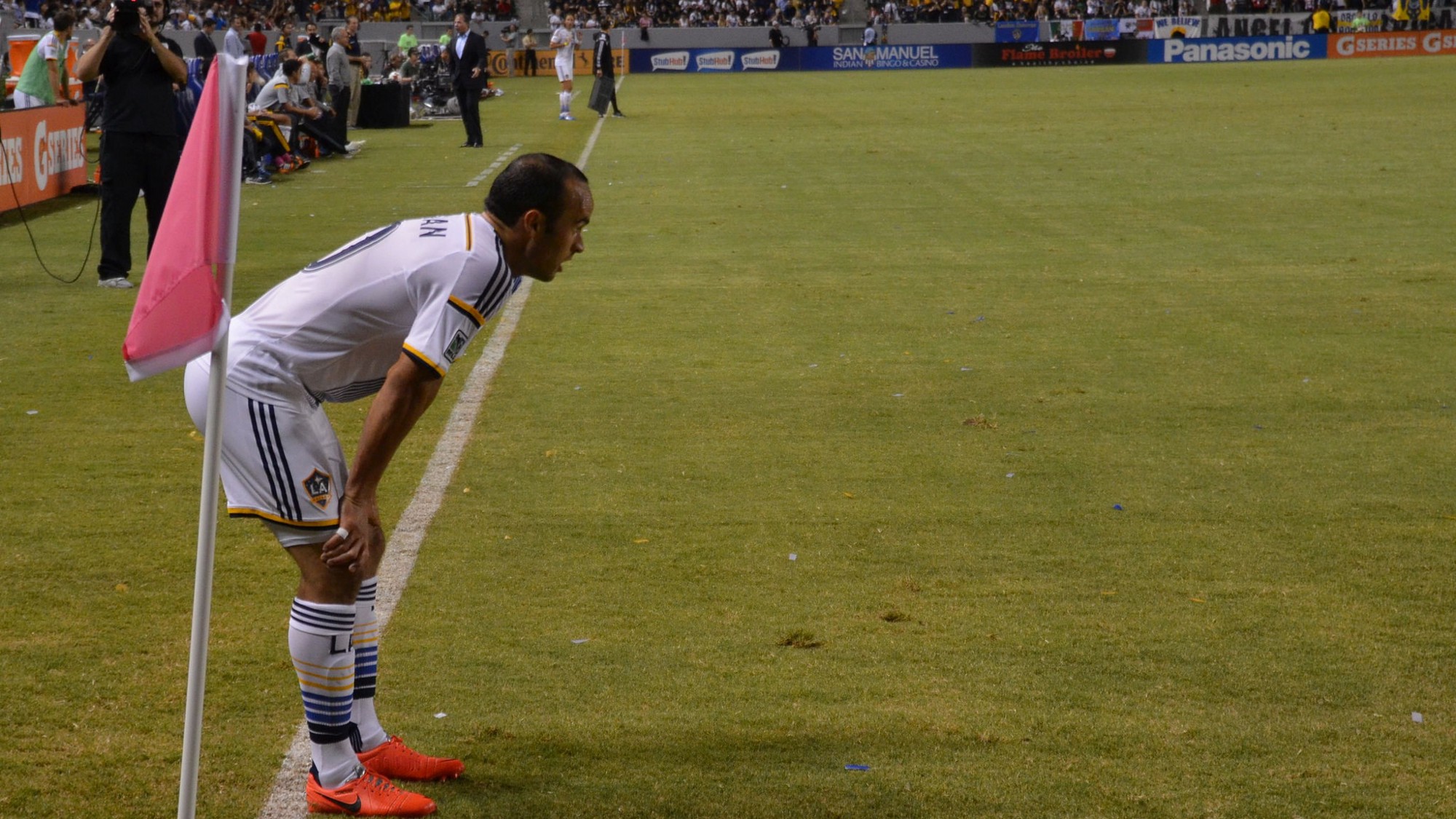Dr. Donovan or: How I Learned to Stop Worrying and Love Landon
April 14, 2015
On the eve of a Landon-less U.S.-Mexico match, an El Tri supporter finds himself missing the man he used to hate

By Cesar Hernandez | Photo by The Daily Sport Herald
[F]or a decade, I hated Landon Donovan about as much as I could hate a soccer player.
I was born and raised in the United States and am as culturally assimilated as a first-generation Mexican-American can be, but El Tri is my first fútbol love. At a certain point, that love spawned hatred for my own country’s national team and brightest star.
We’ll call that point June 2002, when a 20-year-old Donovan knocked in the second goal of the 2–0 U.S. victory that bounced Mexico from the World Cup Round of 16. It was the most important match ever between the two countries, and a statement win for an American team that had turned this rivalry from a joke to something very, very serious.
His first and last international goals both came against Mexico. It’s almost as if he was born to be Enemy Numero Uno.
For the first time, I began to worry about my beloved El Tri facing the United States. Donovan became the embodiment of my unease — when he took the field, I was both anxious and angry. He went on to be named the Best Young Player of that 2002 World Cup and would score a total of six goals against Mexico in his career. For good measure, in 2004, he urinated on the field at Guadalajara’s Estadio Jalisco to cement his stature as a villain.
So naturally, like most Mexican fans, I hated him. When Donovan appeared on my television, it was usually because he was playing El Tri, and when he was playing El Tri, he was often scoring.
Yet when he said he needed a break from the sport back in late 2012, I was overcome by a bizarre feeling — something like sympathy. It was as though a bully had opened up to me, citing his physical and mental struggles and his desire to see more of the world. Sure, he had tormented me, but how could I hate him for being so honest?
When images appeared online of him playing pickup soccer in Cambodia, it only humanized him further. He was no longer an impervious super-villain with the power to instantly infuriate me. In those photos, he just looked like a barefoot guy on a church mission in Southeast Asia.
My hatred turned to respect. When he announced his retirement, I felt a warmth for Donovan that truly surprised me.
How could I feel that way? Shouldn’t I have been happy or perhaps even ecstatic to see him leave the game? Donovan — the player synonymous with dos a cero; the player who scored on El Tri twice during the Gold Cup, twice during friendlies, once in World Cup Qualifying, and once in that 2002 World Cup match. His first and last international goals both came against Mexico. It’s almost as if he was born to be Enemy Numero Uno.
If empathy seemed unnatural, the next stage was even more strange. When the MLS playoffs began last year, I started to root for Landon Donovan. Despite his past, I wanted him to succeed, and it honestly made me happy to see him lift the MLS Cup after defeating the New England Revolution. I may have even ignored five to ten minutes of a Liga MX playoff game as the MLS Cup final wound down.
When Donovan said he needed a break from the sport back in late 2012, it was as though a bully had opened up to me.
And now, on the eve of Wednesday’s U.S.-Mexico match — the first since his retirement — I find myself wishing Donovan would be lacing up his boots in San Antonio, even if it might mean another 90 minutes of misery for my favorite team.
Perhaps, in some deep, visceral way, I needed him in my soccer life. Analysts and critics could make the case for a number of variables that made the U.S.-Mexico rivalry more competitive, but to me, Donovan was the driving force for that change, and he made the games so much more fun to watch.
Landon Donovan was a villain whom I loved to hate. And I’m going to miss the guy.

Cesar Hernandez reports on Liga MX and El Tri for ESPN FC. He lives in California and tweets under the handle @cesarhfutbol.
